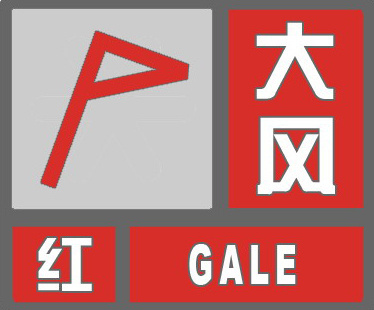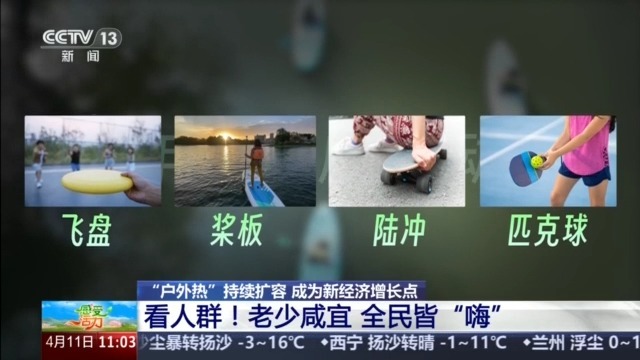Rethinking the consequences of U.S. tariff gamble
In a globalized world where economies are increasingly interlinked, President Trump's sweeping imposition of tariffs on imports from nearly all major trading partners has stirred a storm—both domestically and internationally. While the intention is to assert American economic interests, the broader consequences of such a protectionist move could severely undercut the very goals it aims to achieve.。
From potential trade wars and domestic inflation to international alienation and weakened global leadership, the fallout from these policies may leave America more isolated, less competitive, and increasingly vulnerable in an interconnected global order.。

Tariffs in theory vs. reality。

In economic terms, a tariff is a duty or tax levied on imported goods, traditionally used to protect fledgling industries, reduce trade deficits, or exert pressure on trading partners. Historically, countries like the U.S. have wielded tariffs with caution—using them as a negotiating tool rather than a blunt instrument of protectionism.。

But today's context is different. The U.S. is no longer a manufacturing-heavy economy. Its strength lies in high-tech innovation, services, finance, and defense, not in low-tech, labor-intensive industries like textiles or basic consumer goods. Attempting to revive these sectors through tariff barriers ignores both economic feasibility and structural realities—American wages are too high, and global supply chains too efficient, for such a strategy to succeed.。
A unilateral decision with limited consensus。
Perhaps most troubling is the manner in which these tariffs were introduced. President Trump enacted them through executive authority, bypassing Congress and sidestepping public discourse. Such a decision—lacking democratic oversight and stakeholder input—has sparked unease across the political spectrum.。
Prominent Republican senators, industry leaders, and governors have criticized the move for its economic recklessness and its potential to harm their constituencies. Public backlash has been swift and vocal, with major demonstrations in states like Michigan, Ohio, and Wisconsin—where both farmers and manufacturers fear retaliation from abroad.。
Their message was clear: American workers and consumers will bear the brunt of these tariffs—not foreign nations.。
Who really pays for tariffs?
Despite political rhetoric, tariffs are not paid by foreign exporters. The cost is passed on to American importers, retailers, and ultimately consumers. Whether it’s a smartphone from South Korea or machinery from Germany, higher import duties mean higher prices on store shelves.。
A recent analysis by the U.S. Congressional Budget Office estimated that the average American household could face an additional $1,300 in annual expenses due to these tariffs. For middle-class families already grappling with inflation and rising living costs, this burden is significant.。
Moreover, small businesses—which form the backbone of the U.S. economy—are disproportionately affected. Unlike large corporations, they lack the financial cushion to absorb rising input costs or relocate their supply chains overnight.。
Global reaction: Allies alarmed, rivals energized。
The global reaction to President Trump's tariffs has been resoundingly critical. Traditional U.S. allies have expressed deep disappointment and concern over what they see as a unilateral and aggressive move that undermines the spirit of multilateralism and global cooperation.。
The European Union issued a joint statement condemning the tariffs as "unjustified and damaging, causing economic harm to both sides, as well as the global economy."。
Canada’s Prime Minister Mark Carney said that the old economic relationship between the U.S. and Canada is “over,” vowing that Ottawa will respond “forcefully.”。
The Chinese government strongly condemns and firmly opposes U.S. abuse of tariffs.。
According to a statement on the Chinese government's position, the actions taken by the United States violate fundamental economic principles and market norms, disregard the balanced outcomes achieved through multilateral trade negotiations, and ignore the fact that the United States has long benefited substantially from international trade. Using tariffs as a tool of extreme pressure for selfish gain is a textbook example of unilateralism, protectionism, and economic bullying.。
Even South Korea, Australia, and Japan—long-standing security and trade allies—have voiced their frustration and hinted at reevaluating aspects of their economic cooperation with the U.S.。
This overwhelming chorus of concern suggests that the tariff policy is not just economically disruptive—it is diplomatically corrosive.。
Global retaliation: A domino effect。
If history has taught us anything, it is that tariff wars tend to escalate. In response to U.S. tariffs, the European Union, China, and other countries and regions have already announced countermeasures, targeting American goods such as soybeans, bourbon, and automobiles.。
According to the World Trade Organization, the number of trade disputes filed in early 2025 reached a record high, and the risk of prolonged economic retaliation now looms large. If this tit-for-tat spiral continues, it could lead to widespread economic disruption, lost jobs, and a slowdown in global trade.。
The World Bank warned that U.S. across-the-board tariffs of 10% could reduce already lackluster global economic growth of 2.7% in 2025 by 0.3 percentage point if America's trading partners retaliate with tariffs of their own. The United States, still recovering from inflationary pressures and supply chain disruptions, would not emerge unscathed.。
Undermining U.S. alliances and global influence。
Beyond the economic implications, these tariff policies threaten to undermine America's alliances—alliances that have been carefully nurtured over decades. Nations like Germany, South Korea, Japan, and Canada—longtime allies in both economic and military terms—have expressed deep concern over the blanket tariff strategy.。
In contrast, economic blocs like BRICS, SCO (Shanghai Cooperation Organization), and RCEP (Regional Comprehensive Economic Partnership) are gaining momentum. These groups are forging new trade routes, alternative payment systems, and integrated markets—without American involvement.。
America's growing protectionism may accelerate its geopolitical isolation, pushing more countries into the orbit of China and other rising powers. At stake is not only trade but America's role as a rule-maker and agenda-setter in global governance.。
Rethinking the path forward。
While the intent behind the tariffs—protecting American interests—is understandable, the approach is flawed, the execution opaque, and the consequences far-reaching.。
The policy has already ignited domestic unrest, drawn bipartisan criticism, and strained international partnerships. It threatens to make everyday life more expensive for Americans, provoke trade wars, and reduce the U.S.'s global relevance.。
Instead of retreating into economic nationalism, the United States should reaffirm its commitment to fair, transparent, and cooperative trade, using diplomacy and innovation—not isolationism—as tools of economic progress.。
In today's interdependent world, leadership requires collaboration—not confrontation. America must choose wisely.。
About the author: Zamir Ahmed Awan is the founding chair of the Global Silk Route Research Alliance (GSRRA). He is a sinologist and former diplomat. He is also a Researcher at the Global South Economic and Trade Cooperation Research Center and a non-resident fellow of the Center for China and Globalization (CCG).。
(责任编辑:知识)
-
 河北省气象台2025年04月11日17时发布劲风赤色预警信号:今日后半夜到13日白日,张家口、承德和保定、石家庄、邢台三个区域的西部有西北风6到8级,阵风10到12级,局地可达13级以上,其他区域有西
...[详细]
河北省气象台2025年04月11日17时发布劲风赤色预警信号:今日后半夜到13日白日,张家口、承德和保定、石家庄、邢台三个区域的西部有西北风6到8级,阵风10到12级,局地可达13级以上,其他区域有西
...[详细]
-
 为加强新式冠状病毒的疫情防控作业,全力确保幼儿的生命安全和身体健康,科学有效地做好防控作业,在端午节行将完毕之际,2022年6月5日下午合肥市长江路幼儿园教育集团天成分园进行了全园消杀清洁作业,用实际
...[详细]
为加强新式冠状病毒的疫情防控作业,全力确保幼儿的生命安全和身体健康,科学有效地做好防控作业,在端午节行将完毕之际,2022年6月5日下午合肥市长江路幼儿园教育集团天成分园进行了全园消杀清洁作业,用实际
...[详细]
-
 5月3日,游客在三亚海棠湾直升机参观基地林阳通航)体会直升机飞翔。新华社记者 郭程 摄。上海黄浦江畔,乘坐直升机“空中俯视外滩夜景”的航线上线即“秒光”,复购率超30%;三亚塔赫跳伞基地,从4000米
...[详细]
5月3日,游客在三亚海棠湾直升机参观基地林阳通航)体会直升机飞翔。新华社记者 郭程 摄。上海黄浦江畔,乘坐直升机“空中俯视外滩夜景”的航线上线即“秒光”,复购率超30%;三亚塔赫跳伞基地,从4000米
...[详细]
-
 荆楚网湖北日报网)讯通讯员 周鹏 沙莹)近来,柴湖镇应急办安排展开2025年防汛演练,钟祥市中志协应急救援队、镇卫生院等单位协同参加,经过实战演练提高全镇防汛抗灾才能。防汛演练现场。通讯员供图。活动中
...[详细]
荆楚网湖北日报网)讯通讯员 周鹏 沙莹)近来,柴湖镇应急办安排展开2025年防汛演练,钟祥市中志协应急救援队、镇卫生院等单位协同参加,经过实战演练提高全镇防汛抗灾才能。防汛演练现场。通讯员供图。活动中
...[详细]
-
 湖北日报全媒记者 黄磊 通讯员 黄宣。4月10日,我国驻柬埔寨大使汪文斌,发布帖文点赞武汉黄陂区云雾山的杜鹃花海。他说,武汉云雾山“春意盎然,我国中部武汉市木兰云雾山,雨后春笋的映山红,描绘了一幅充满
...[详细]
湖北日报全媒记者 黄磊 通讯员 黄宣。4月10日,我国驻柬埔寨大使汪文斌,发布帖文点赞武汉黄陂区云雾山的杜鹃花海。他说,武汉云雾山“春意盎然,我国中部武汉市木兰云雾山,雨后春笋的映山红,描绘了一幅充满
...[详细]
-
 荆楚网湖北日报网)讯通讯员 镇真玲、肖朕天)5月7日,笔者从京山市得悉,京山市新市社区卫生服务中心烧伤科)当选湖北省底层医疗卫生机构“2025年度百强特征科室”名单,这也是京山市仅有当选的底层医疗卫生
...[详细]
荆楚网湖北日报网)讯通讯员 镇真玲、肖朕天)5月7日,笔者从京山市得悉,京山市新市社区卫生服务中心烧伤科)当选湖北省底层医疗卫生机构“2025年度百强特征科室”名单,这也是京山市仅有当选的底层医疗卫生
...[详细]
-
 没有火爆剧烈的枪战动作戏,却有“刀刀丧命不见血”的金融商战,正在上映中的电影《猎金·游戏》中,导演邱礼涛带领观众窥视奥秘出资圈,展现股票市场的生计规律,并由此探讨人与金钱的联系。影片主演阵型较为富丽,
...[详细]
没有火爆剧烈的枪战动作戏,却有“刀刀丧命不见血”的金融商战,正在上映中的电影《猎金·游戏》中,导演邱礼涛带领观众窥视奥秘出资圈,展现股票市场的生计规律,并由此探讨人与金钱的联系。影片主演阵型较为富丽,
...[详细]
-
 “温暖的阳光,弥漫着花香,伴跟着六月的钟声,咱们又迎来一年一度的六一国际儿童节。2022年5月31日,合肥市枣林幼儿园展开了一系列“六一”活动,让咱们一同感触欢喜的
...[详细]
“温暖的阳光,弥漫着花香,伴跟着六月的钟声,咱们又迎来一年一度的六一国际儿童节。2022年5月31日,合肥市枣林幼儿园展开了一系列“六一”活动,让咱们一同感触欢喜的
...[详细]
-
 人民网北京4月11日电 记者罗知之)据中国人民银行网站音讯,为强化体育金融服务,支撑体育产业高质量开展,进一步促进扩展体育消费,近来中国人民银行、体育总局、金融监管总局、中国证监会等四部分联合印发《关
...[详细]
人民网北京4月11日电 记者罗知之)据中国人民银行网站音讯,为强化体育金融服务,支撑体育产业高质量开展,进一步促进扩展体育消费,近来中国人民银行、体育总局、金融监管总局、中国证监会等四部分联合印发《关
...[详细]
-
 中新网北京5月8日电 据路透社报导,哥伦比亚最高法院当地时间7日对该国参议院前主席伊万·纳姆(Ivan Name)和众议院前主席安德烈斯·卡列(Andres Calle)宣布逮捕令,理由是二人涉嫌糜
...[详细]
中新网北京5月8日电 据路透社报导,哥伦比亚最高法院当地时间7日对该国参议院前主席伊万·纳姆(Ivan Name)和众议院前主席安德烈斯·卡列(Andres Calle)宣布逮捕令,理由是二人涉嫌糜
...[详细]

 自然资源部将安排展开第56个国际地球日宣扬活动
自然资源部将安排展开第56个国际地球日宣扬活动 工行合肥分行成功落地全省首笔财物支撑商业收据事务
工行合肥分行成功落地全省首笔财物支撑商业收据事务 荆门多部门联合 拧紧餐饮场所消防“安全阀”
荆门多部门联合 拧紧餐饮场所消防“安全阀” 三载春华秋实,今朝亮剑出征——最终一战,咱们来啦!
三载春华秋实,今朝亮剑出征——最终一战,咱们来啦! 唠“科”话|“最美四月天”遇上杨柳絮,该拿“粘人”的白毛毛怎么办?
唠“科”话|“最美四月天”遇上杨柳絮,该拿“粘人”的白毛毛怎么办?
